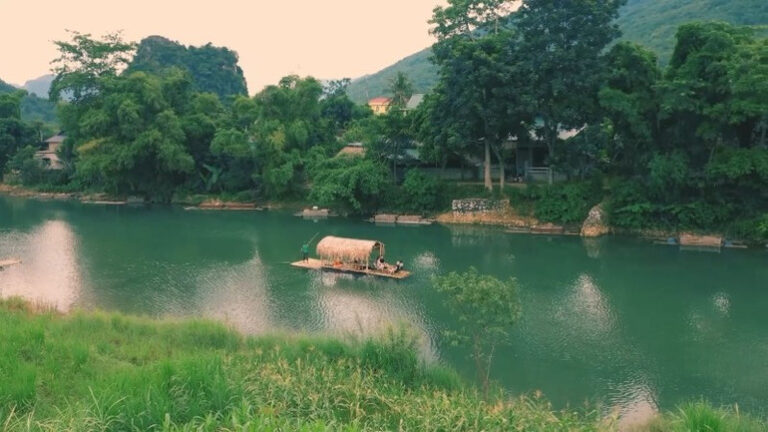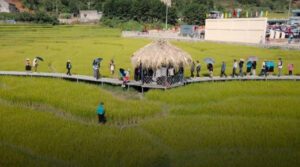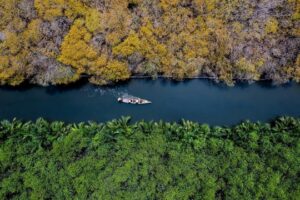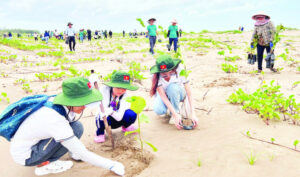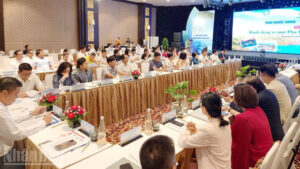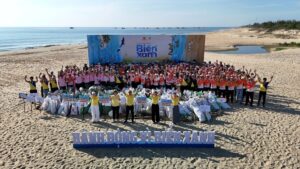Top class hotels and resorts may provide visitors to Vietnam with plenty of options for comfortable trips with high-class facilities and services, but if you really want a local taste of life here, a homestay is hard to beat, writes Hong Nhung
Homestay and community -based tourism models are a mainstay of the worldwide tourism industry. This style of travel allows visitors to stay with a local family for a true insight into their everyday life. The concept has become more popular in recent years, thanks in part to the fact that it ties tourism, the environment and community together.
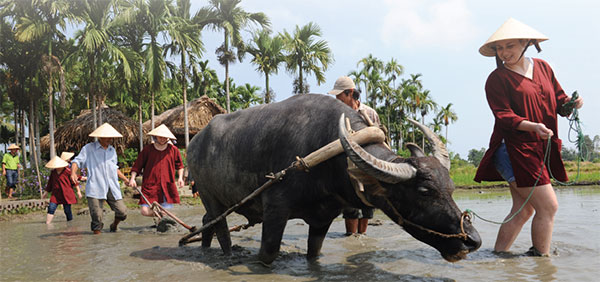
Promising destinations
Ten years ago, Hanoi was the first place in Vietnam which allowed people to host a homestay for foreigners. Now, homestays are appearing everywhere throughout the country. Spending nights in stilt houses in the mountainous provinces such as Ha Giang, Lao Cai, Bac Kan or Son La, or in simple bungalows in the Mekong Delta is now on many people’s itineraries.
Ta Van, a village 8km from Sapa in Lao Cai province, has around 40 households providing homestays for tourists. Ly Thi Lin and her son Luc Van Loi have a two-storey wooden house for rent. “We usually have tourists staying here and sometimes NGO staff,” said Lin.
Lin’s house welcomes two guests per night, on average. Some houses have tens of guests every day.
While Loi takes tourists around to introduce local culture and life to them, his mum stays at home preparing a meal, which is sometimes simply a bowl of Vietnamese noodles with pork meat (instead of chicken or beef like in cities) and some drinks.
The house is traditional, with many everyday items hanging on the walls, such as a bunch of dry rice and a traditional costume. All such houses are very clean with standard toilets, mattresses and curtains to satisfy the basic accommodation needs of tourists.
Experiencing community based tourism in the Mekong Delta is highly recommended by many tourists. Patrice Nathan, a French tourist, had much praise for Hung homestay in Can Tho province: “I and my girlfriends spent two nights in Hung homestay and I think that is great way to see this land. Hung is great man, has excellent English, a crazy sense of humour and did everything to ensure that we enjoyed the visit. Hung also provides a boat trip to Cai Rang floating market and a walking tour through his local village which is fun and informative.”
In central Vietnam, community based tourism is very developed because of the high awareness of its value there. Hoian Ecotour is a travel agent which has created many unique and quality tours of this kind. 35 year old Jacky Tran, manager of the agent, says: “Experiencing country life is what tourists can enjoy from our tours. They can join fishing in Cua Dai, rice planting in Cam Thanh and vegetable growing in Tra Que. Many individual tourists and foreign travel agents contact us when they see our products.”
In many places, after developing community based tourism, local people’s income has been improved considerably; therefore, Vietnamese agents and authorities are aiming to expand this model.
Much potential, but many challenges
After a visit to Cao Bang, I kept wondering why community based tourism has not developed there – it has wild, stunning landscapes, a diverse ecosystem, and a rich local culture with many minority groups.
Nhan Thi Minh Thi, deputy director of Cao Bang’s Department of Culture, Sport and Tourism, explains: “People here are unfamiliar with the tourism business. We have carried out a community tourism project in Pac Ngoi village, but we have not had the budget to continue in another place.”
At Tu Ne, a village of Muong people in Hoa Binh province, I witnessed how hard it is to carry out such a project. “Most of the people in Tu Ne are Muong, but when we came here, they did not wear their traditional costume. Wooden stilt houses had been destroyed to clear space to build concrete ones. They were on the brink of losing their local characteristics,” said Le Thi Van Hue, director of Cecad, which started the project of community based tourism in Tu Ne in 2008.
Cecad sent people to Tu Ne to teach people how to develop tourism by taking back their own traditional culture. However, it did not work as they lacked the money to provide basic facilities in the village; that is, until Huong Giang Travel joined them in 2011.
“Many people said they wanted an authentic homestay; however, very few of them would feel comfortable living in an authentic place with very poor living conditions, with the mosquitoes, the heat and humidity and a hard bamboo bed. So, we have had to change a few things to meet certain requirements.”
Community-based tourism has brought back the original look of Tu Ne commune. People are always ready to smile and talk to strangers. They know how to show their tradition and culture off - they wear their traditional costume and do traditional jobs, such as bee keeping, rice planting and sugar crane planting.
That said, Tu Ne is not seeing as much success as expected having welcomed only around ten guests in 2013. This is not an outcome which will encourage other locals to follow suit.
Jacky Tran acknowledged the difficulties of this business: “This kind of tour is now very popular, and the key is creating the difference.” He also focusses on pricing strategy: “We focus on high quality products which may be rather expensive, but we can ensure that at every moment our guests feel satisfied as they get a true taste of daily life.” He added: “We are now working with over 30 households in Hoi An and we ensure them monthly income from VND4-7million per family.”


